PAST LIVES (2023)
Two childhood friends are wrested apart after one's family emigrates from South Korea. 20 years later, they're reunited for one fateful week...
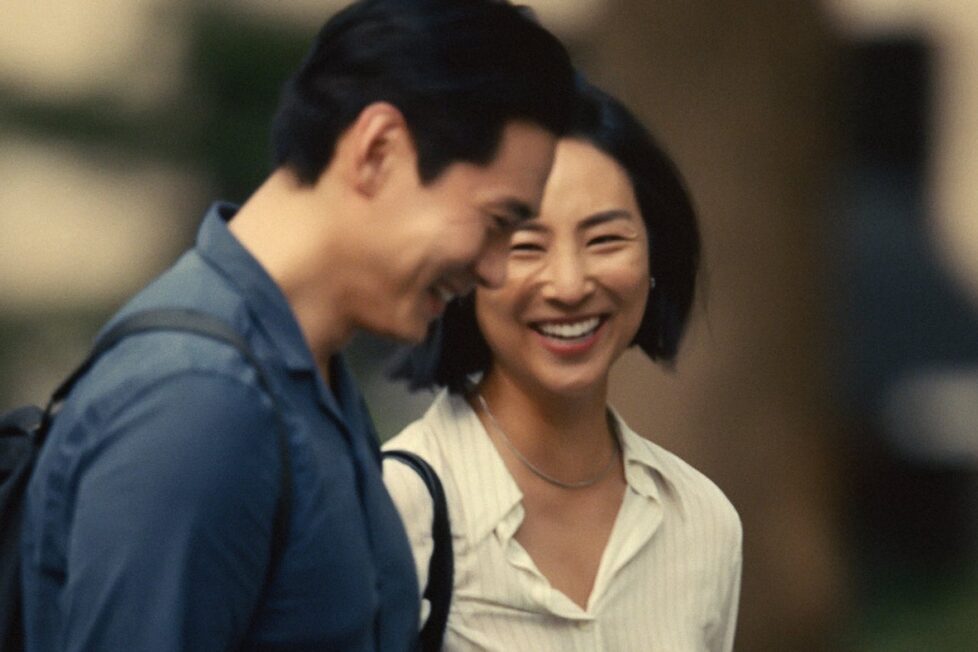
Two childhood friends are wrested apart after one's family emigrates from South Korea. 20 years later, they're reunited for one fateful week...


The first few seconds of Celine Song’s decades-spanning, poignantly lived-in debut feature, Past Lives, are about assumptions. As cinematographer Shabier Kirschner’s camera slowly pushes in on our three protagonists—Nora (Greta Lee), Hae-sung (Teo Yoo), and Arthur (John Magaro)—sitting at a bar together, an off-screen couple remarks on what could possibly be the relation between them. One of them conjectures that Nora and Hae-sung are a couple, while Arthur is their tour guide. The other thinks that Nora and Arthur are the couple in question, while Hae-sung is their Korean friend. All the while, Kirschner’s camera continues to unwaveringly move forward, until Nora is the only person in the centre of the frame, her face laced with both a sense of mild excitement and deep uncertainty. The answer to the couple’s inquiry, as it turns out, is far more complex than either of them could have anticipated.
As the film jumps back 24 years, we’re thrown into Seoul, South Korea, where we promptly learn that Nora (then called Na-young) and Hae-sung were childhood friends with an unusually close bond, to the degree where both their parents would eventually set up a date for both of them to further strengthen it. With a relative economy of narrative, Song patiently traces the innocence of a burgeoning young relationship set against the backdrop of the apartment-laden cityscapes of Seoul, one steadily formed in the backseats of sedans, stone installations in parks, and the open dirt fields behind an elementary school building. Such stylistic modesty, tangible attention to detail, and atmospheric patience remain consistent throughout the film’s layered yet ostensibly simple narrative. It’s here we get the first taste of how this film chooses to elegantly move through months’ worth of development, change, and time.
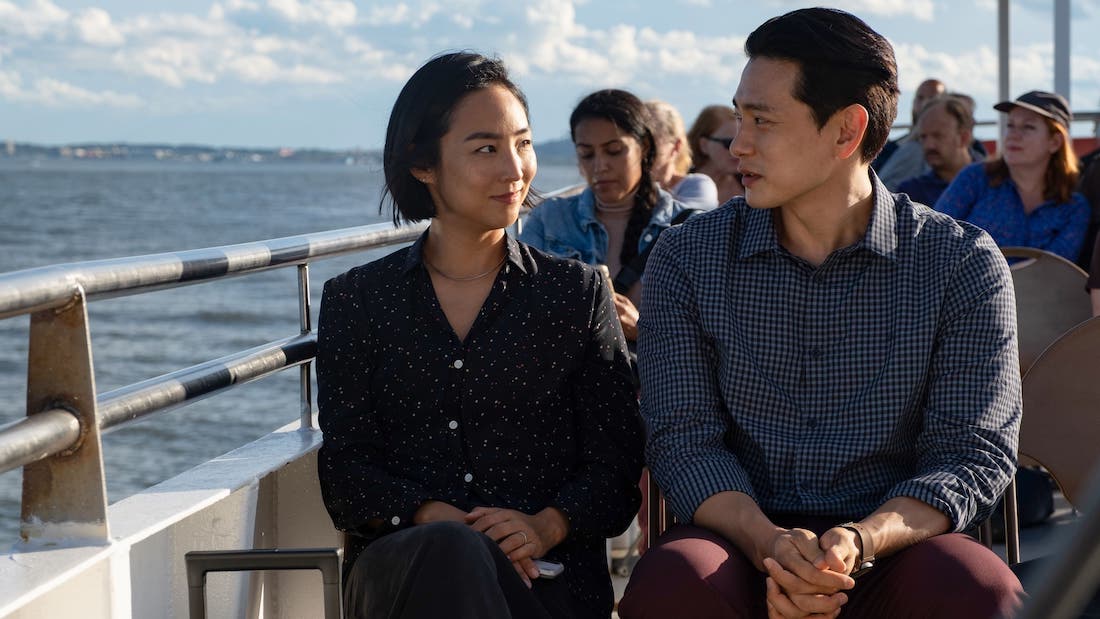
Eventually, Nora’s family migrates to Toronto, Canada, before she herself moves to New York sometime within the 12 years that pass. In a serendipitous bout of curiosity, she comes across a comment that Hae-sung drunkenly left stating that he was looking for her, unaware that she had legally changed her name. Nora soon reaches out, prompting a series of online Skype conversations between the two in which they catch up on how their past 12 years have gone, and what their individual futures are looking like now. Both of them promise to visit each other in their respective countries; neither plans come to fruition.
With an understated commitment to her already established sense of atmosphere, Song proceeds to distinctly separate her two protagonists through the details surrounding their individual locations halfway across the globe. Seoul and New York both serve as bustling urban centres for their respective countries, and it’s once again in things like the minutiae of the apartments Nora and Hae-sung live in, the people they meet, and the career paths they take, that we get to immerse ourselves in the divergent paths on which they’ve grown.
That’s not to mention, of course, how they react to each others’ changes in both appearance and personality, even through the barrier of computer screens… as well as how that change slowly becomes another obstacle in the two’s way. Eventually, it’s Nora’s commitment to her career in New York and an impending writers’ retreat she’s due to attend that drives her and Hae-sung apart yet again. At the said retreat, Nora encounters Arthur, whom she talks to one night about the uniquely Korean concept of in-yeon (인연), or “providence.” In her words, it’s a way of gauging the depth of a relationship one has with another developed over the course of several lifetimes. Married couples, for instance, have 8,000 layers of in-yeon backing them up; layers that seem to have manifested in a fully-fledged relationship for Nora and Arthur in this particular life, as we see them as a married couple another 12 years later.
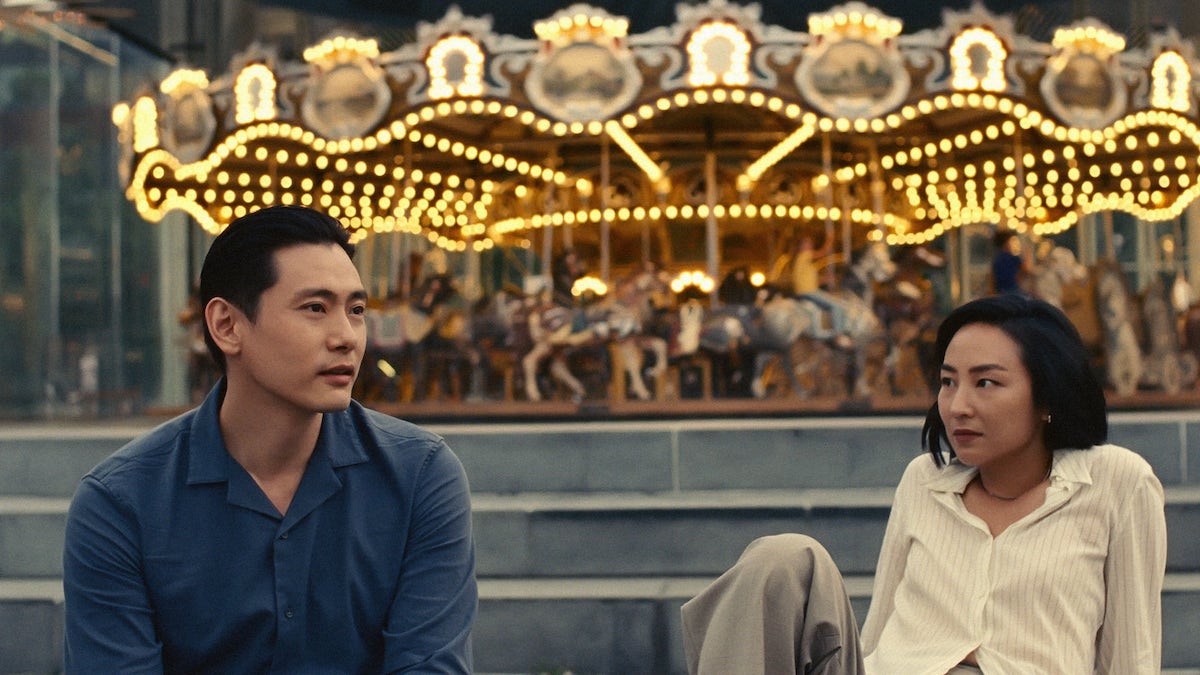
And yet, providence always finds a way of reemerging. Hae-sung finally makes good on his promise to visit New York after far too long a wait, and runs into Nora once more, prompting yet another round of sincere connection between them. In the ensuing days, however, the commitments that have since formed in their lives eventually lead to emotional complications for both of them, ones that they eventually try to parse through and clarify.
In the process of addressing them, the answers they find are ones rooted in deeply human concerns; the cultural disparity ingrained in the Asian American diaspora, the differing approaches to the pursuit of happiness, and the web of boundaries within relationships. The reflections they commit to are on transience, distance, and yearning, and how all three have reshaped them both over the past 24 years. The conclusions they ultimately reach are nothing short of undeniably moving.
Song has crafted a tale of remarkable poignance in Past Lives, taking a premise whose decade-spanning nature both betrays its simplicity and provides a wealth of melancholy and depth. As a feature film debut, it’s a remarkable achievement, one that derives its emotional frequency from the likes of romances like Richard Linklater’s Before trilogy or Wong Kar-wai’s films, adding the epochal weight of longing and desire to ostensibly quotidian events and conversations. For a film whose sparse cast and low-stakes narrative may lead to preconceived notions about this being a film low on plot, one can rest assured the story is specifically tailored to mark significant change within the characters and is loaded with thematic subtext. Not a single line delivery or change in expression from any of the characters is designed to be merely what it says on the tin.

The moment Nora virtually parts ways with Hae-sung, 12 years before their in-person reunion, is perhaps one of the strongest demonstrations of that principle in action. Nora’s expression and demeanour seem almost steeled up and rigid; as if she’s rehearsed this moment knowing it was going to happen this whole time. But there’s a difficulty to the way she goes about delivering this news, almost as if the agony of prioritizing her career over growing closer to Hae-sung might completely engulf her if she isn’t cautious. That’s not to say anything, of course, about how Hae-sung takes the news. In an instant, his concerned expression betrays the nascent beginnings of grief over another possibility lost. Once again, he finds himself left behind by another one of Nora’s departures, something he’s bound not to forget in the 12 years that soon ensue.
For such a tightly driven character drama, Song’s primary cast of three faithfully plays their way through the emotional intricacies of her deceptively straightforward character dynamics. Lee, for one, plays Nora ineffably and with great immediacy, down to all of her intensely human contradictions in both identity and romance. With a deeply lived-in portrayal, Lee understands that Nora’s American identity as tied to Arthur, alongside her Korean identity as tied to Hae-sung, seems to have created an earth-shaking reckoning with her own upbringing and adulthood. It’s astonishingly difficult to emotionally balance Nora’s commitments and progress in her career with her lingering vestiges of youthful excitement and longing, but Lee executes that tightrope walk with significant grace.
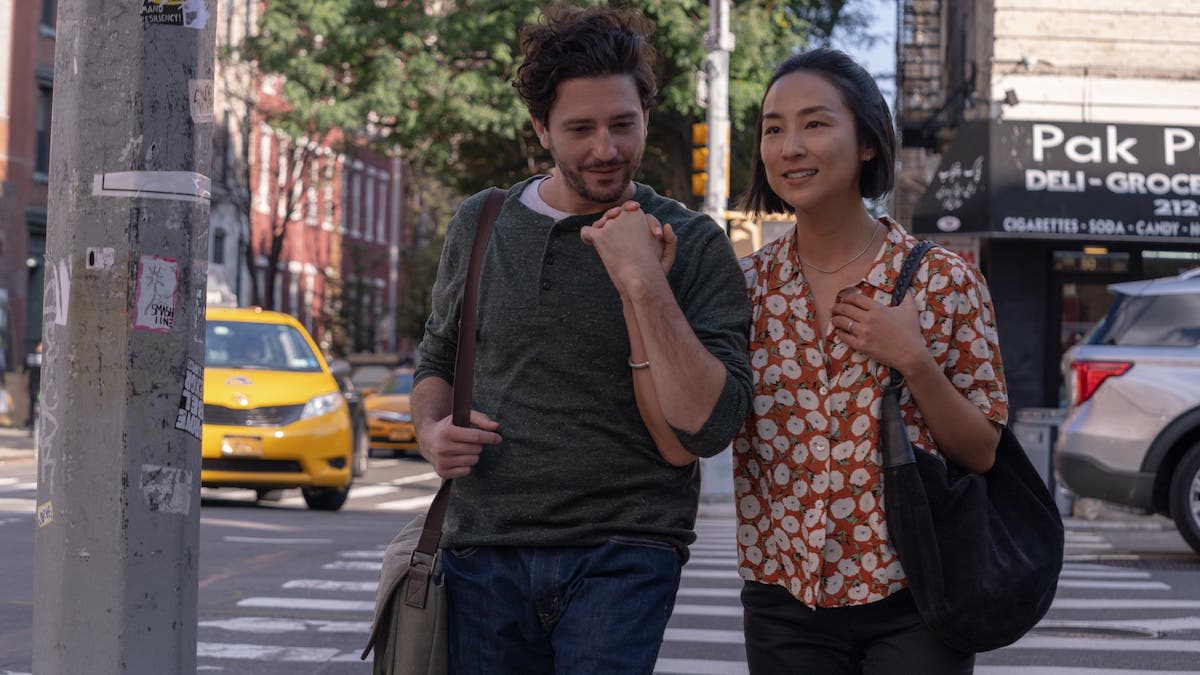
Yoo, meanwhile, portrays Hae-sung as a man whose devotion and vulnerability, even in the face of growing cultural distance between him and Nora, makes for a compelling hopeless-romantic protagonist, especially one with a subtly refreshing dose of self-awareness. Magaro walks a sharply fine line as Arthur, playing a man who compassionately allows Nora to parse through her longing for Hae-sung out of a refusal to submit to a clichéd, forbidding sense of envy. However, he understandably finds himself confronted with his own place in their marriage. He’s now facing a new side of Nora through a fresh understanding of her cultural roots, all of which are filtered through one seemingly sporadic and ephemeral man from her past.
The most pivotal moments in the emotional highs of Past Lives are about assumptions. At one point, Nora and Hae-sung ponder among themselves about whether the bond between them now is yet another life they are experiencing together, another layer that will soon lead to a deeper relationship between them in some farther-off lifetime. They contemplate what life would have been like had they made different decisions. Had Nora not left Korea for Toronto, or had Hae-sung not left that Facebook comment that brought them together virtually after twelve years, would they have grown closer or farther apart?
But again, the answers to their inquiries are likely far more complex than either of them could ever anticipate. The couple observing them from afar in the bar, despite their efforts, never quite pinned down the true nature of Nora, Hae-sung, and Arthur’s relationship. Perhaps Nora and Hae-sung are fated to never quite pin down the true nature of the in-yeon that lasts between them, either. Maybe they are only to know of its presence, and that for a time, it enriched both of their lives, however briefly.
USA • SOUTH KOREA | 2023 | 105 MINUTES | 1.85:1 | COLOUR | ENGLISH • KOREAN

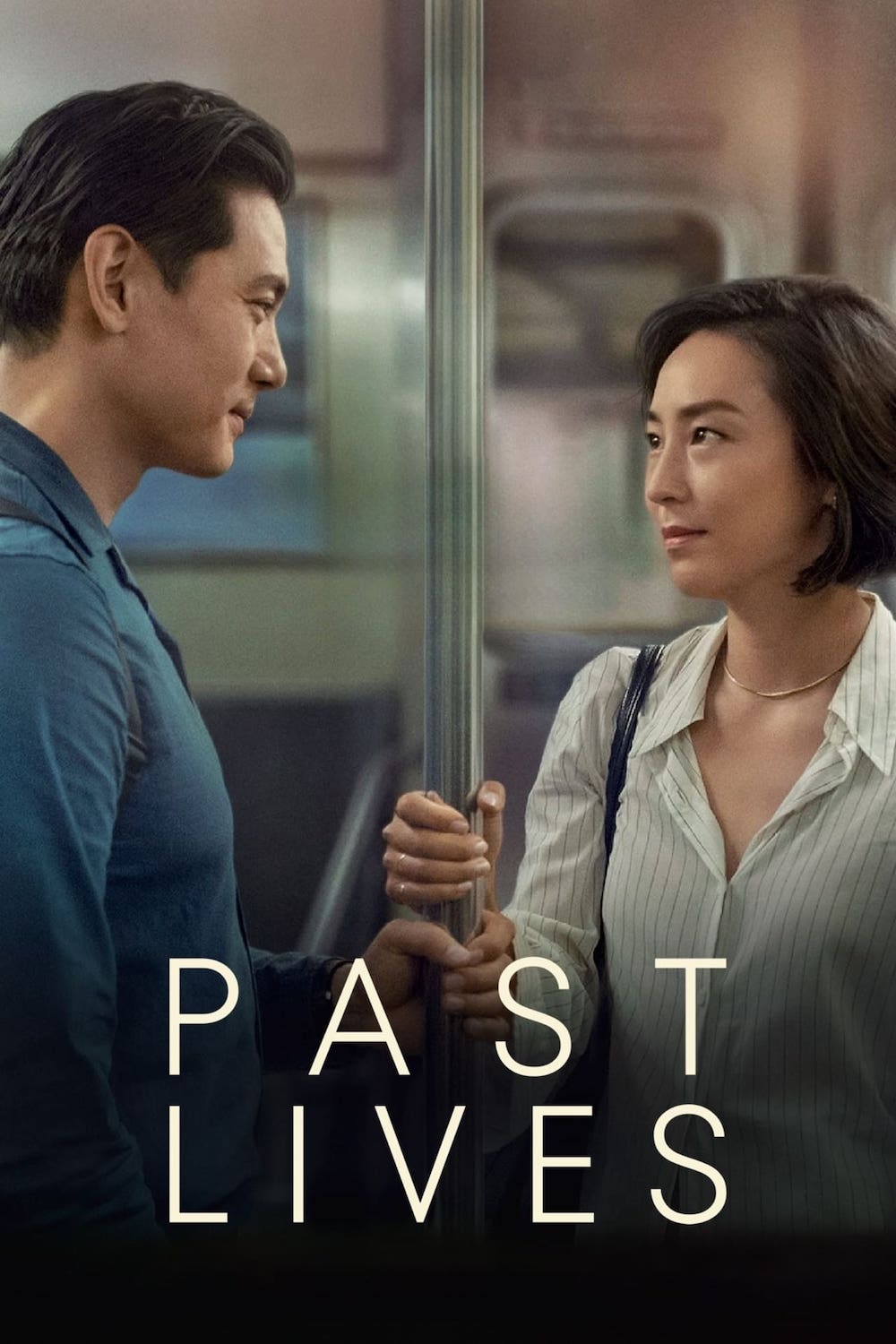
writers & director: Celine Song.
starring: Greta Lee, Teo Yoo, John Magaro, Moon Seung-ah & Leem Seung-Min.
